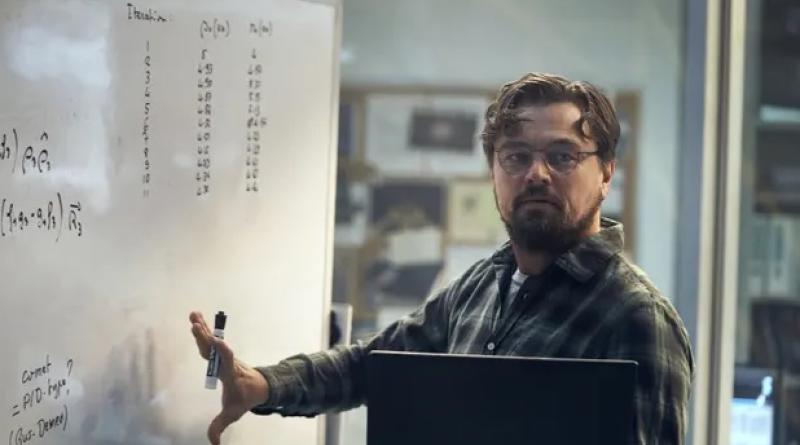Why our secret weapon against the climate crisis could be humour

We can’t just sit back and watch what’s happening to the planet. We are not an audience.
Like it or not, we are in this story
As a scientist and a movie maker, we both once naively assumed that data and storytelling would converge to help prevent the imminent collapse of our habitable climate. Fire tornadoes, mega hurricanes, biblical floods, fossil fuel companies misleading the public and gambling our lives for huge profits – of course, such apocalyptic imagery would lead to gripping newscasts, dramatic interpretations, and stirring speeches from our leaders, sparking action at every level of society.
After all, the real-life story of the climate crisis makes even the wildest, biggest-budget film like Don’t Look Up seem like a charming EM Forster adaptation. But does this story-of-all-stories get wall-to-wall news coverage? Nope. Not by a long shot.
Despite a horrifying parade of extreme weather events fit for an apocalypse film, only 0.4% of corporate news airtime in 2020 was about climate. According to a recent study by MediaMatters, corporate news coverage of the climate catastrophe plummeted by 53% in 2020 compared to 2019. Even before the pandemic, across the entirety of 2019, major networks devoted less than four hours of coverage total to the greatest threat to life on Earth in 65 million years, since the asteroid that took out the dinosaurs.
Clearly we need to reassess how we’re communicating this massive story. So, Don’t Look Up tries to do something that perhaps doesn’t feel natural with a story as dark as climate change: make the audience laugh. Because when people laugh together it gives them perspective, relief and, most of all, a semblance of community. This is not conjecture. Research shows that humor can lower our defenses and make hard truths easier to hear.
Hopefully comedy can help elucidate how our culture of swipes, clicks and likes is taking us further and further away from the one subject we must talk about.
Corporations, advertising and PR firms are turning even the most basic exchange of information into a sales pitch or “brand enhancement” and it’s put us in a very dangerous place. What better way to rob this constant churning wall of spin, coercion and success porn than by simply laughing at it? FDR once said: “There’s no better way to disarm the Devil than by pointing out his fly is down.” (He didn’t really say that, but how cool would it be if he had?)
This is not to say that everything should be jokes and memes. Some people need a book like The Uninhabitable Earth to give them a kick in the pants – in fact, that’s one of the things that inspired Adam to write this screenplay, along with the 2018 Intergovernmental Panel on Climate Change report. Others need a climate solutions podcast like How to Save a Planet, which Ayana co-created, to show a path forward. We need all manner of compelling creations to reach all types of folks.
The point of all of this is to welcome more and more people into the work of driving forward climate solutions. Seventy per cent of adults in the US say they are willing to take action on climate, but 51% say they don’t know where to start. Though fervent climate science deniers get lots of attention, they are only 7% of Americans. Amid all the dire news, these are encouraging numbers.
Maybe some film or gif or TikTok has jostled you to think seriously about what you can do. Specifically you. Well, here’s one way to answer that question: think of a Venn diagram with three overlapping circles. In the first, put what you’re good at. (So, which Avenger are you and what are your specific super powers?) In the second, put what part of the climate challenge you want to work on. (Your mission, should you choose to accept it.) In the third, put what brings you joy. (What, for you, isn’t work because you love it so much?) And then find your way to the epicenter of that climate action Venn diagram for as many minutes of your life as you can. We don’t all have to do the same thing – in fact we shouldn’t. And if you want some help getting started, we’ve got you covered with some specific suggestions for steps you can take toward a safer planet.
You see, when it comes to climate change, we are all in the writers’ room right now, deciding how the story unfolds and how it ends. And that story can be funny, dire, hopeful or all of the above. But not every story is guaranteed a happy ending, even though that’s mostly what we see in movies. So we can’t just sit back and watch. We are not an audience. Like it or not, we are in this story.
-
Adam McKay is a writer, director and producer. Recent credits include Don’t Look Up, Vice and The Big Short
-
Dr Ayana Elizabeth Johnson is a scientist who advises on climate policy. She is co-creator of the thinktank Urban Ocean Lab, the podcast How to Save a Planet, and the anthology All We Can Save
cover photo: Don’t Look Up tries to do something that perhaps doesn’t feel natural with a story as dark as climate change: make the audience laugh. Photograph: Niko Tavernise/AP





